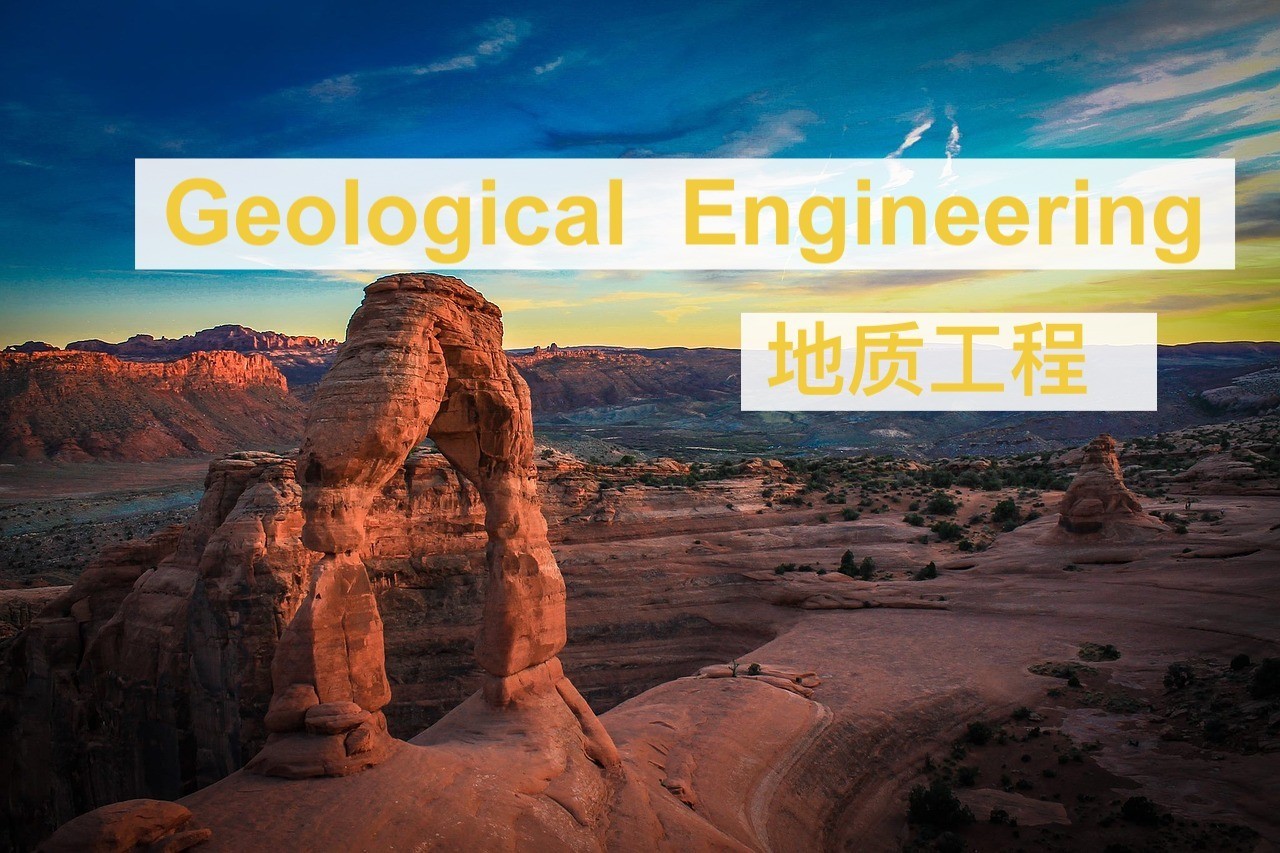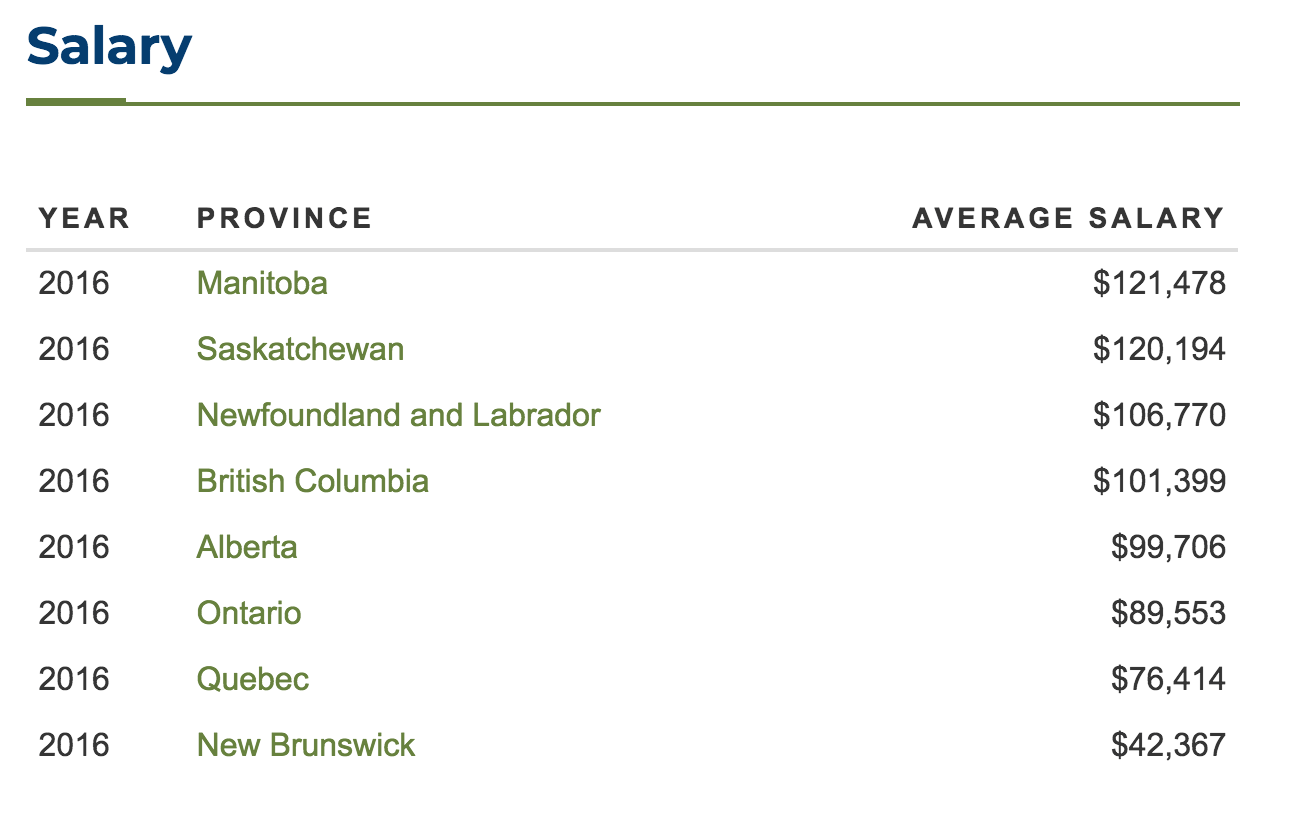[Introduction]The geological engineeringmajor aims to teach students how to develop earth resources sustainably. So, what are the employment prospects of international students studying geological engineering in Canada? This article will cover the introduction of the Canadian geological engineering major, annual salary, employment prospects, program rankings, professional skills taught, and the views of netizens and UtoCanada.

Introduction to the Canadian Geological Engineering major
The geological engineeringand mining engineering are often combined into one category of discipline. Geological engineering is focused on the judicious and sustainable use of earth's resources, including source oil and gas exploration, mineral, water and other material extraction, while reducing adverse environmental impacts.
They apply geological sciences to civil engineering, mining and forestry fields. The work of geological/geotechnical engineers often supports and guides engineering work in other fields. For example, in order to assess the suitability of some civil engineering, mining operations and oil or gas projects, geological engineers conduct geological and geotechnical studies. The advice of geological engineers often influences the construction and operation of these projects.
Related articles of the engineering major:
Employment prospects for geoengineering graduates in Canada
As a result of the decline of Canada's oil industry in recent years, according to thepredictions made by Engineers Canada,there will be 135 job openings a year for geological engineers over the next five years (the largest number in BC) in Canada. While most provinces will see a normal supply and demand of geological engineers over the next five years, there may be an increase in demand for these talents in BC, Manitoba and New Brunswick, depending on the number of large projects to be undertaken.
Geological engineering graduates are most likely to find related jobs in the following areas:
- Oil and gas exploration and production
- geophysical
- Petroleum related engineering projects
- Mining and mining engineering
- Metallurgical engineering
- Environmental protection
Once a junior engineer has gained enough experience, they may be obtain the P.Eng certification.(engineers in Ontario, click here) and then become a senior engineer.
》Obtaining the license and certification of geological engineers
Becoming a P.Eng usually means a salary increase and a promotion.
Senior geological engineers with extensive experience may move into management positions and oversee the entire production unit. From there, they may move into operations management positions and be responsible for managing large industrial parks. In addition, geological engineers with sufficient experience and/or education may choose to undertake consulting work. The geoengineering consultant may provide consulting services for the company or as a proprietary contractor.
You need toobtain a professional engineer’s (PE) permission (link to a government website)In order to have direct control over government projects and supervise other geological engineers and engineering technicians, the individual in charge of the company needs to have a PE title in order to sell their engineering services.
As a licensed professional engineer in Canada, the following conditions are usually required:
- A four-year bachelor's degree in a recognized engineering major
- A passing score on the Professional Engineering (PE) exam
- Relevant work experience, typically at least 4 years, and at least 12 months under the supervision of a professional engineer
- At the time of the background check, there are at least three recommenders
- Successfully completed the legal, professional ethics and professional recognition exams
》Geological/geotechnical engineers perform some or all of the following duties:
- Planning, developing and coordinating data collection, analysis and surveying schemes for geotechnical, geological, geophysical or hydrogeological projects to assist development projects
- Analyze and prepare civil engineering (such as rock excavation, pressure grouting and hydraulic channel erosion control) foundation construction or improvement suggestions and reports
- Analyze and compile proposals and reports on building settlements, slope and fill stability, as well as landslides and earthquakes that may affect construction and civil engineering projects
- Conduct theoretical and applied research on groundwater flow and pollution, and formulate measures for site selection, management and construction
- Plan, develop, coordinate and carry out theoretical and experimental research related to mineral exploration, mine evaluation and its feasibility
- Investigate and research ore deposits, ore reserve calculations and underground mine design
- Design, develop and implement computer applications in geophysics, geochemistry, geology, surveying and mapping and related fields
- Supervise technicians, other engineers and scientists
Geological/geotechnical engineers will plan, design and implement geotechnical, geological, geophysical or hydrogeological data collection, analysis and mapping procedures. These analyses allow geological engineers to figure out the impact that geological formations may have on construction projects, and mining and civil engineering projects, such as rock excavation, pressure grouting, hydraulic erosion control, building settlement, slope stability and filling, impact of landslides and earthquakes, groundwater flow and pollution. Geological engineers often work closely with mining engineers to conduct exploration, mine evaluation and feasibility studies, and ensure sustainable extraction of mineral and energy resources from underground deposits.
》Organizations employing geological engineers:
In general, geological/geotechnical engineers can be employed by the following types of organizations:
- Engineering consulting firms
- State and federal environmental protection agencies
- National Geological Surveys and U.S. Geological Surveys
- Schools: Universities, colleges, research institutes, high schools
- Engineering companies
- Government city planning departments
- Environmental companies
- Oil and gas exploration, production and transportation companies
- Mining companies
- State and Federal highway departments
- National Oceanic and Atmospheric Administration (NOAA), ministry of internal affairs, National Park Service, Bureau of Land Management and other government agencies
- Publishers and producers of scientific books, magazines, computer software, network materials and TV programs
Salary of geological engineering graduates: The decisive factors & annual income
The salary level of geological/geotechnical engineers may vary depending on factors such as education level, years of experience, company and industry, and specific job positions.
Income of Geological Engineers in Canada:
- Province with the highest salary: According to Manitoba’s 2016 Salary Survey Report, the average salary of professionals in geological engineering is $121,478 CAD per year.
- Province with the lowest salary: According to New Brunswick’s 2016 Salary Survey Report, the average salary of professionals in geological engineering is $42,367 CAD per year.
 (Source: Engineer Canada)
(Source: Engineer Canada)
》Three kinds of geological engineering qualifications: college diploma, undergraduate degree, graduate degree
Traditionally, Canadian geological engineering credentials can be obtained in three ways:
- Geological Engineering Specialist Diploma:generally 2-3 years
- Geological Engineering Undergraduate Degree:generally takes 4 years to complete
- Geological Engineering Graduate Degree:generally takes 2 years to complete (Master’s degrees usually require an additional two years of study)Graduate programs generally focus on one type of material, such as petroleum or gypsum, or a specific field, such as hydrogeology.
The best schools for geological engineering
According toMacLean's latest program rankings of Canadian universities, the rankings of engineering programs are as follows:
1、University of Toronto (Engineering major)
2、University of Waterloo(Engineering major)
3、UBC(Engineering major)
4、University of Alberta(Engineering major)
5、McGill University(Engineering major)
6、University of Ottawa(Engineering major)
7、 Queen’s University(Engineering major)
8、Université de Montréal(University of Montreal Engineering major)
9、McMaster University(Engineering major)
10、University of Calgary (Engineering major )
11、University of Victoria (Engineering major)
12、Université Laval (Laval University - French institution)
13、Ryerson University(Ryerson UniversityEngineering major)
14、 University of Saskatchewan(University of SaskatchewanEngineering major)
15、Western University (Engineering major )
16、York University (Engineering major)
17、Dalhousie University (Dalhousie UniversityEngineering major)
18、Lakehead University (Engineering major)
19、Simon Fraser University(Engineering major)
20、Concordia University(Engineering major)
21、University of Ontario Institute of Technology (Engineering major)
Summary: UtoCanada’s views on the geological engineering major
As we have always stressed, before you choose a major, make sure that you are truly interested in the field and make sure that you have the potential. If the following description sounds like you, you maybe be well suited for a career as a geological engineer:
- Those who become geological engineers are emotionally stable because it is necessary to accomplish both short- and long-term tasks. They must also have talent in various academic fields, such as chemistry, physics and engineering.
- Geological engineers must learn broad concepts of the field and be able to apply these concepts to specific production problems. They must be interested in solving complex production-related problems and be able to visualize complex processes and device functions.
- Geological engineers must be able to work in a laboratory or processing plant environment and must be able to effectively communicate their findings and ideas to others.
If you think you fit this description, then you might be a really good fit for being a geological engineer. We recommend that you prepare yourself in the following areas during your studies:
- Learn the skills in your major and earn a good-looking transcript
- Develop the necessary soft skills (especially, improve your English through various methods before graduation)
- Establish a network in geological engineering
"Learn the skills within the profession," your parents will constantly say this to you. So, we won't need to say much here. Let’s focus on a few other things.
》Developing "soft skills" during the course of your studies – especially English proficiency
If you're going to be a geological engineer, you'll need the necessary workplace soft skills in addition to your professional skills. Without these soft skills, performing any key job functions would be a struggle.
Some soft skills are:
- English language proficiency
- Ability to analyze large amounts of data
- Ability to make decisions with confidence
- Ability to explain design ideas and plans clearly and verbally
- Good teamwork ability
- Excellent logical thinking and problem solving skills
- Ability to balance the overall situation and details
》Establish a network in geological engineering
Sometimes, what matters is not what you know, but who you know. In North America, the workplace is also very particular about personal referrals. When someone mentions you at the right time and place, it is better than you submitting a hundreds of resumes.
You may be thinking: How can I effectively expand my network in this field while still studying at school? You can refer to the following ideas:
- Alumni Association:Your alumni association is a good place to start establishing engineering contacts. Most universities and colleges will have an alumni association that you can join. The benefit of joining the alumni association is that you connect with people who have worked in your industry
- Professors and classmates:Don't underestimate the value of building relationships through your school years. Professors often work on-site before or outside of their teaching hours and may provide you with advice on where to find work. They also see countless other students graduating and know well about how previous students found employment after graduation. They are also very informative, just like your classmates who work withyou on projects.
- Professional associations of geoengineering:In Canada, each province has a professional association to which engineers can join. In addition to government-regulated associations, there are many others. For example, as a geological engineer, you may find that your local association in your field is more focused on your interests and career goals. These associations often have resources to help members connect or find jobs.















